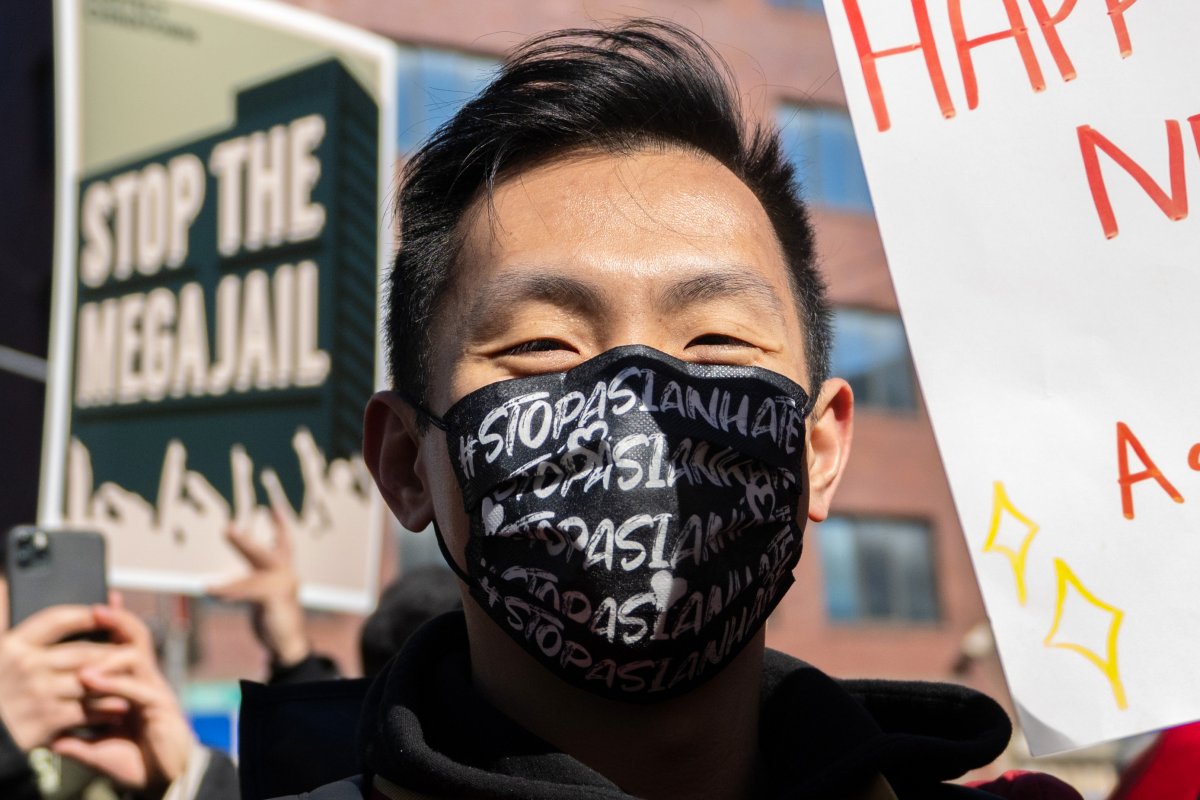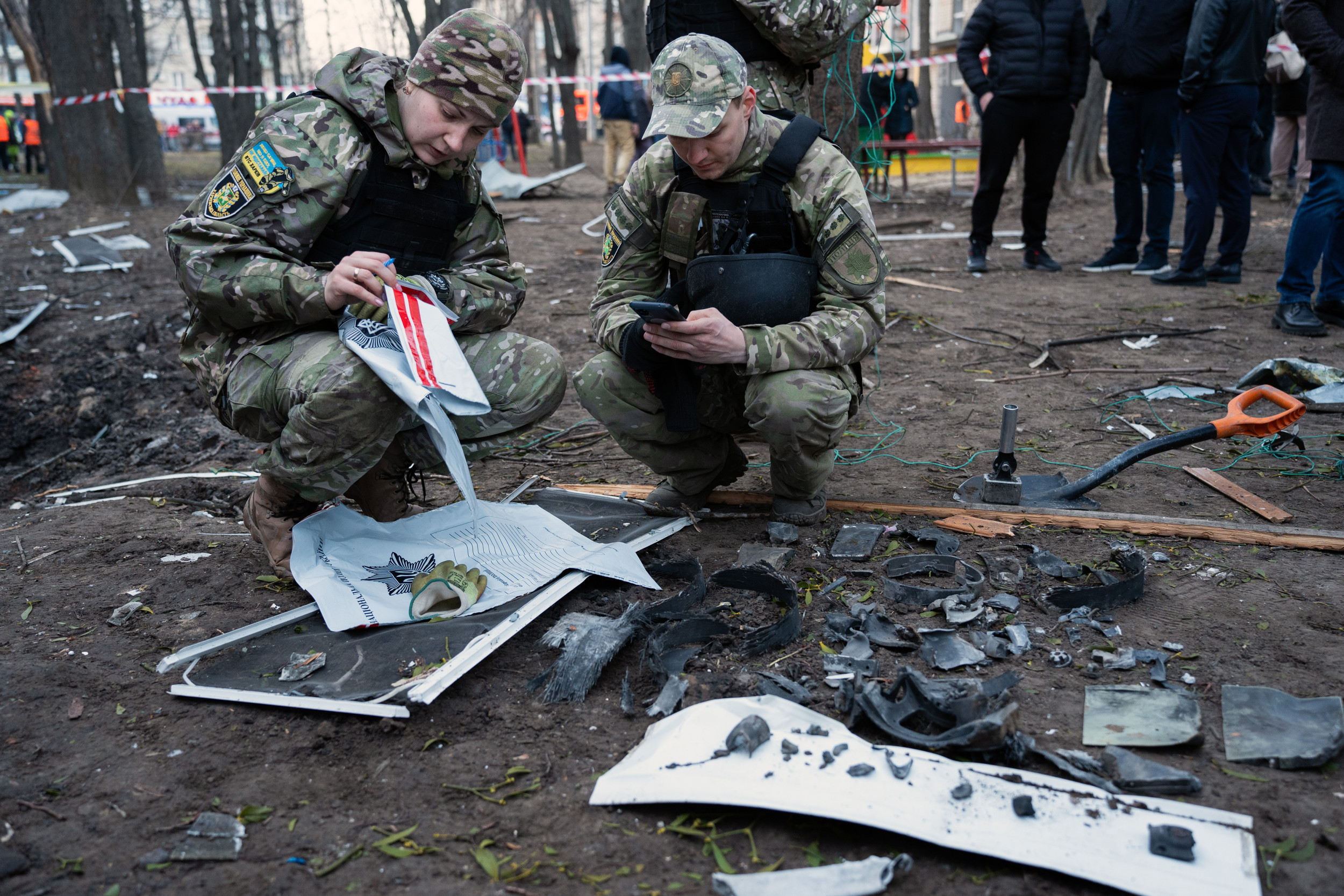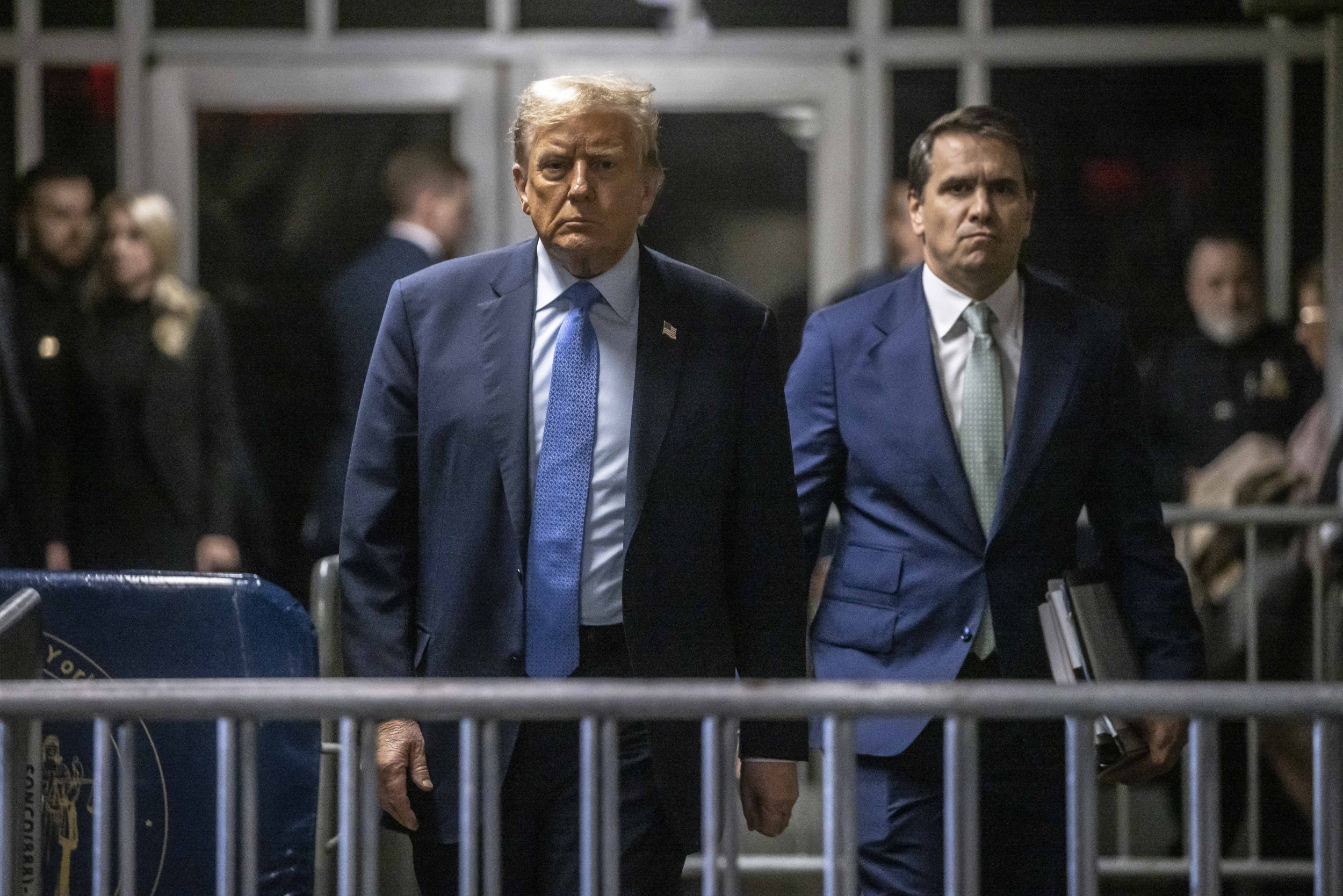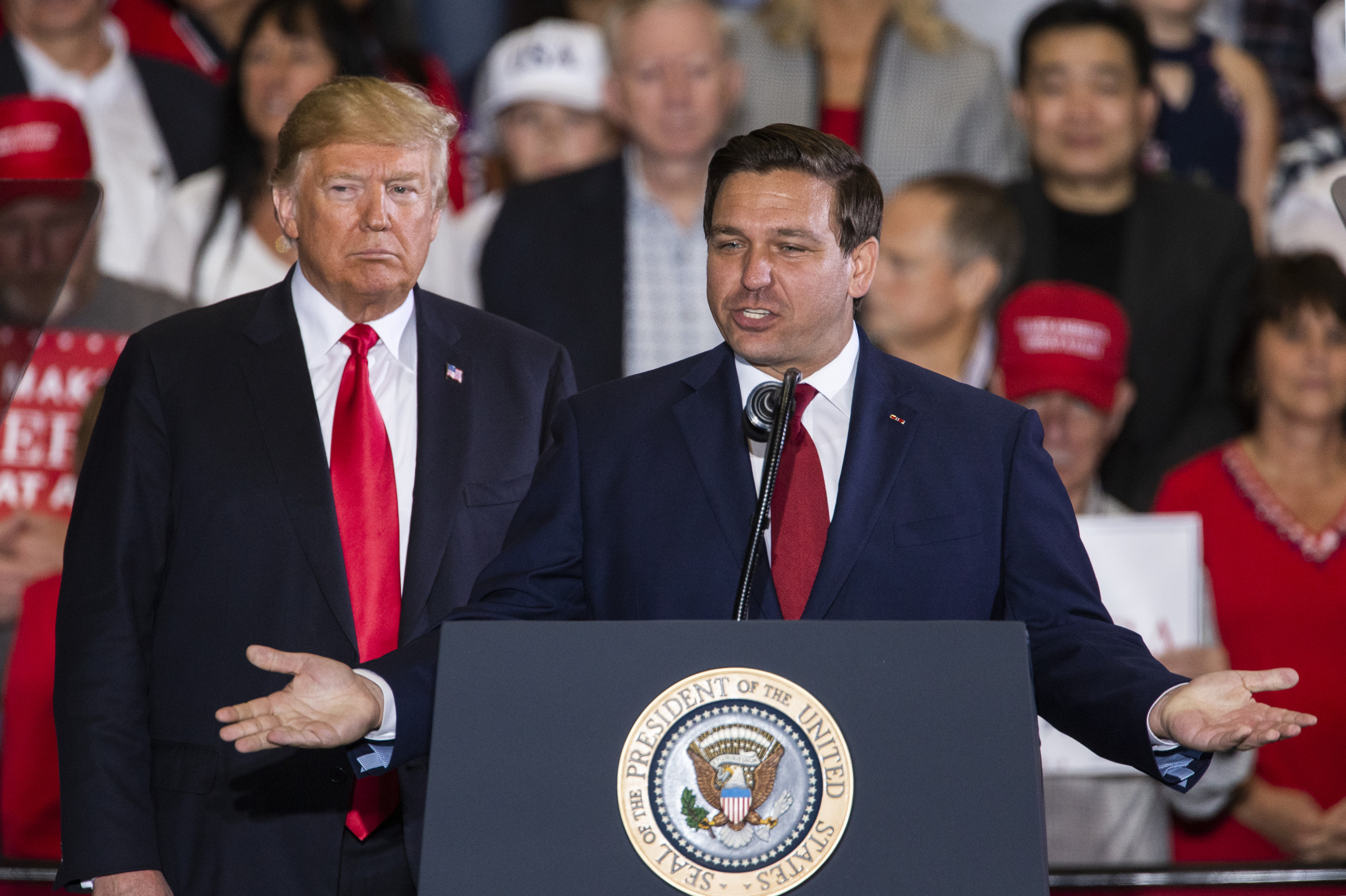"Sorry, that's not our post. We can't leave our post," police officers told Teresa Ting, an AAPI (Asian American Pacific Islander) woman during an incident. "Please call 911."
She and her community watch group Main Street Patrol informed authorities after spotting two men saying anti-Asian racial slurs near the Flushing Library in Queens, New York City. This occurred only months before the COVID-19 Hate Crimes Act became law, intended to center safety for Asian Americans. Key components of the law are to expedite the examination of hate crimes on the federal level and fund law enforcement to address situations better. Before the bill was introduced to Congress, anti-Asian hate had been widely blamed on former President Donald Trump, who used phrases like "China virus" and "kung flu" to refer to COVID-19. Boaz Tang, a researcher for Stop AAPI Hate on the West Coast, recalled some of the anti-Asian sentiment spreading across Europe and U.S. with the coronavirus. "There [was] probably going to be some racialized stuff," he said.
While this bill was believed to resolve the urgent need for AAPI safety, many Asian Americans remained hesitant. "It was a reactionary response," said Eun Kyung Chee, a community organizer in Chicago. "There are profound data and research gaps that continue to hinder our communities—this country's broad understanding about violence and racism affecting the Asian American communities."
A petition signed by more than 100 AAPI, Black, Latinx and LGBTQ+-led organizations echoed Chee's concerns and cited incidents of policing as anti-Asian violence. In 1977, police violently evicted Filipino immigrants from the International Hotel in San Francisco. In 2020, Filipino American Angelo Quinto died when his family said police put a knee on his neck, similar to the murder of George Floyd. Authorities in both cases used the legal defense of "excited delirium." Many also remember Chinese American Christian Hall, a 19-year-old boy in Pennsylvania killed by police in December 2020, according to video footage obtained by attorneys representing Hall's family.
"There was new footage that was released by his family's attorneys that contradicted previous statements made by the police," remembered Chee. "The police say if he doesn't drop it—meaning the pellet gun that was in his hand—just take him. And they did. They shot and killed him." And in New York City, many uplift Yang Song, an immigrant who died in 2017 during a police raid in Queens, New York, after she described being sexually assaulted by an undercover police officer.

Despite these concrete and historic concerns, the bill was ratified May 20, 2021. Even with these measures, Stop AAPI Hate reported a staggering 10,905 incidents of racial bias between March 2020 and December 2021. In New York City this year, a string of violent incidents occurred with Asian victims, such as on trains where law enforcement increased to 3,500 officers under the recently elected Mayor Eric Adams, a former police officer. In the recent killing of an Asian delivery worker, police had been called to apprehend the suspect multiple times in previous incidents. "There's nothing that any government agency has done to ensure or to lead me to think that those incidents wouldn't happen again," said Tang, the STOP AAPI Hate researcher.
Some recent struggles for AAPI communities have been met with policing. In New York City, police arrested 10 AAPI protestors at a non-violent rally to prevent the construction of a 40-story mega jail in the city's historic Chinatown, which many say will prove an environmental risk and hurt local businesses still reeling from anti-Asian racism and the economic impact of COVID-19. In a survey by Stop AAPI Hate, only 30 percent of Asian Americans and 21.3 percent of Pacific Islanders named policing as the most effective solution in addressing anti-AAPI hate.
The same survey showed that 52.8 percent of Asian Americans and 57.5 percent of Pacific Islanders called for education and 49.7 percent of Asian Americans and 57.5 percent of Pacific Islanders want community-based solutions. "We as an organization do not promote more policing or carceral solutions," said Tang. "We would much rather dedicate resources to local communities, safety programs and in-language support."
Such investments succeeded when the state of Illinois passed the TEAACH Act to incorporate Asian American history into public education. "I learned an incredible amount of our history that I did not learn throughout my education from grammar school through graduate school," said Chee, who advocated for the bill's ratification.
This disconnect between federal policy and community needs are at odds with Asian American safety concerns. Tang urged for more positive rhetoric from politicians when regarding AAPIs, regardless of party. "As U.S.-China relations continue to be contentious, racialized Americans will keep facing collateral of that. Most people can't tell Asians apart," he said. This can be historicized as a pattern with the inhumane incarceration of Japanese Americans during World War II and the ongoing violence toward South and West Asian communities shortly after 9/11.
Future steps may look like investing in dialogue and resources into local AAPI-led safety initiatives like Ting's Main Street Patrol, which offers quick and easy safety tips through social media. For now, AAPIs have to build hope on our own, given that the government's solution did not center our needs, our desires, nor our histories. We don't need more guns on our streets, no matter who is carrying them. We can no longer risk investing in a system that will only respond after another Asian American is hurt or killed because by then it will be too late. We need an intersectional Asian American history taught on the federal level. We need more funding for these community-based solutions because we as Asian Americans, with that support or not, will continue to keep ourselves safe, even though we shouldn't have to.
Rohan Zhou-Lee, pronouns they/siya/祂 (tā), is a queer/non-binary Black-Asian author, dancer and organizer in New York City. Zhou-Lee is the founder of the Blasian March, an initiative to build solidarity between Black, Asian and Blasian communities through education and celebration. They have been featured as an organizer on AJ+, CNN, NBC Chicago, WNYC, Gothamist, Hella Pinay and other news outlets. They have written on Black-Asian solidarity for them. magazine, Prism Reports, Truthout and Mochi Magazine. Their essays have been incorporated into Asian American studies courses at California State University. Rohan invites the community to join them at the Los Angeles Blasian March Black Asian Trans Solidarity Power Rally on Saturday, May 21, at 4 P.M. at Pershing Square in Los Angeles.
The views expressed in this article are the writer's own.
Uncommon Knowledge
Newsweek is committed to challenging conventional wisdom and finding connections in the search for common ground.
Newsweek is committed to challenging conventional wisdom and finding connections in the search for common ground.
About the writer
To read how Newsweek uses AI as a newsroom tool, Click here.








